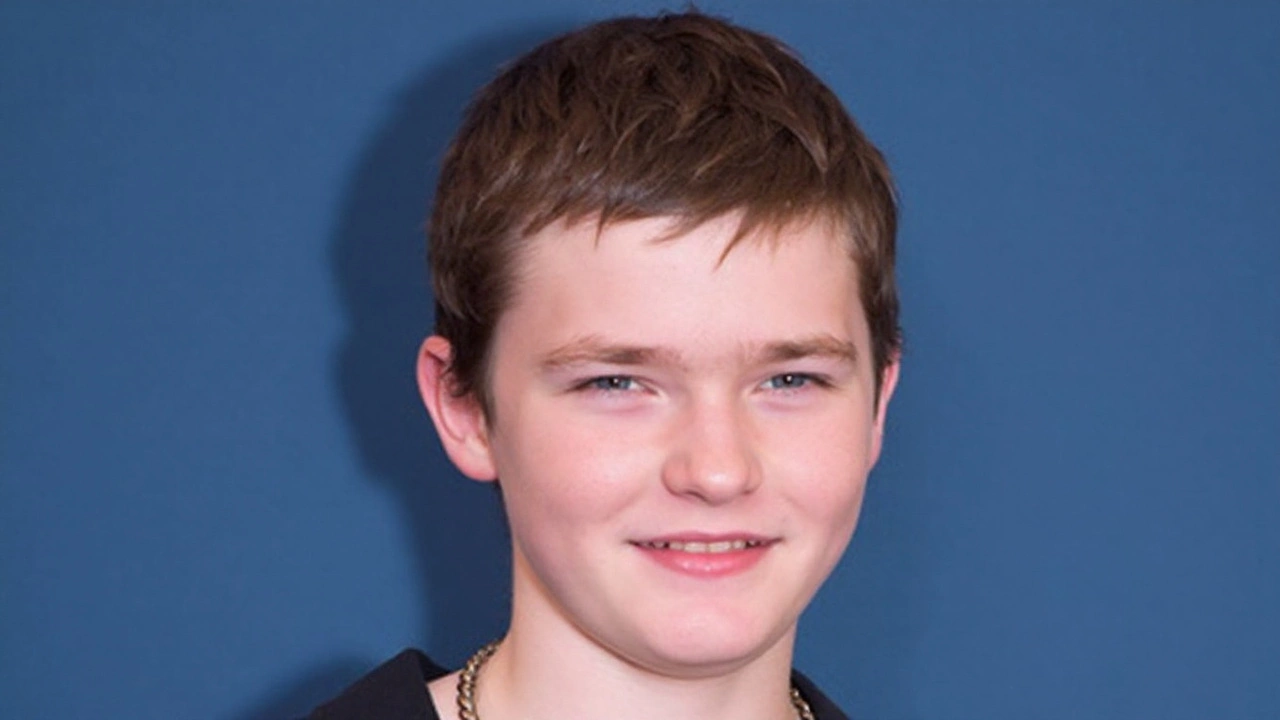A breakout teen actor steps into a literary storm
Owen Cooper has gone from first-time actor to front-row talent fast. The 15-year-old, born December 5, 2009, in Warrington, England, has been cast as young Heathcliff in Emerald Fennell’s new film of Wuthering Heights. It’s his second screen role ever, following his Emmy-nominated debut in Netflix’s Adolescence, where he played 13-year-old Jamie Miller. That early nod set him apart. This new part could define the next stretch of his career.
This Wuthering Heights is shaping up to be a major studio play. Fennell—who wrote and directed Promising Young Woman and Saltburn—is writing, directing, and producing. The project sparked a bidding war before Warner Bros. landed distribution and promised a full theatrical rollout. The studio has set a U.S. release for February 13, 2026, placing a stark, Gothic love story right on Valentine’s weekend. It’s a smart counterpick: bleak romance, big feelings, and a famous title with real cultural weight.
The cast is stacked. Margot Robbie takes on Catherine Earnshaw, with Jacob Elordi as the adult Heathcliff. Cooper will handle Heathcliff’s formative years, handing off to Elordi as the story jumps forward. Hong Chau plays Nelly Dean, the watchful narrator and housekeeper who sees everything. Shazad Latif is Edgar Linton, and Alison Oliver plays Isabella Linton, the siblings whose quiet world is upended by Catherine and Heathcliff’s chaos.
Emily Brontë’s 1847 novel is a raw, stormy drama set on the Yorkshire moors. It follows Heathcliff, an outsider taken in by the Earnshaw family, and his volatile bond with Catherine. The story pivots on obsession, class, revenge, and the wounds of childhood that don’t heal. Playing young Heathcliff isn’t a simple “kid version” job. It asks for an emotional gear shift: grief, pride, rage, and the rough edges that later harden into cruelty. Getting that right is key to why the adult Heathcliff feels so dangerous and so human.
Fennell’s track record hints at a sharp, unsettling tone. Promising Young Woman made a bright palette feel menacing. Saltburn turned privilege into a fever dream. Expect the moors to feel tactile—mud, wind, blood, and bone—and the psychology to bite. With the studio money behind her and a cast that skews big and current, this is set up less like a quiet heritage piece and more like a modern psychological drama that happens to be drawn from a classic text.
Releasing a Gothic tragedy on Valentine’s weekend sounds provocative, but it fits. Audiences often reach for big, emotional stories in February. Wuthering Heights is a love story, just not the safe kind. It’s about devotion that curdles, about longing that eats away at people. Warner Bros. seems to be betting that adults will show up for a bold, atmospheric film with a high-profile director and awards-season heat the following winter.
There’s also a long screen history behind this role. Heathcliff has tempted filmmakers for decades—Laurence Olivier in 1939 set a template for the brooding, romantic lead, and Andrea Arnold’s 2011 version stripped the story down to the raw elements of race, class, and weather, splitting the role across young and adult actors (Solomon Glave and James Howson). That split casting puts pressure on continuity: the voice, posture, stare, and temper have to track across time. Cooper and Elordi will need to feel like the same person at different temperatures.

How Cooper got here—and why the casting matters
Cooper’s path wasn’t the usual child-star route. He wanted to be a footballer and played for the Warrington Rylands U15 squad. A spark hit after he watched Tom Holland in The Impossible, which led him to weekly acting lessons at The Drama Mob in Manchester, co-founded by Coronation Street’s Tina O’Brien and Esther Morgan. His family—his mum works as a carer, his dad in IT, and he has two brothers—backed him without pushing. Then came the Netflix audition, the series order, and a first-time performance strong enough to pull an Emmy nomination.
That kind of jump—first role to major award nomination—is rare. It suggests he can take direction, hit emotional beats, and hold a frame under pressure. Wuthering Heights is a tougher test. Young Heathcliff is most powerful when he says little. His presence has to explain everything that happens later. The hurt, the jealousy, the class humiliation, the love he can’t shake—if those aren’t believable in the early stretch, the second half doesn’t land.
He won’t be doing it alone. Sharing the role with Elordi means collaboration: agreeing on an inner life and building outward. That likely includes choices about accent and rhythm, the way Heathcliff stands when he’s angry, or how his eyes go flat when he’s humiliated. Costume and hair departments help, but the handoff really happens in the performances. When it works, the audience barely notices the switch. They stay with the character, not the actor.
The source material gives plenty to grab onto. Heathcliff’s background is muddy by design. He’s an adopted outsider, thrown into a rigid social order that doesn’t accept him. As a boy, he learns to mask pain with defiance. With Catherine, he drops the mask, and it makes him reckless. A good young Heathcliff shows that fuse being lit—charmed by Catherine, destroyed by her choices, and already scheming how to take power in a world that keeps him out.
Fennell thrives on characters who look one way and live another. That matched with Brontë’s moors could be potent. And with Margot Robbie as Catherine, we’re likely to see a version of the character that’s more feral than fragile. Robbie’s recent run—producing and starring in huge commercial hits while backing filmmaker-led projects—lines up with this gamble. Elordi, meanwhile, has been leaning into complex, modern antiheroes. Turning that energy toward a 19th-century antihero makes sense.
As for schedule, no official production start has been announced. With a February 2026 date, filming would typically land in 2025 with post-production running through late year. Period dramas often shoot on location or on weather-facing sets to make the world feel lived-in. Wuthering Heights benefits from real wind and real mud. The moors are as much a character as anyone else, so expect the team to lean into that.
Industry-wise, the bidding war matters. It signals confidence that this isn’t just another classic in a corset. Studios have been hunting for adult-skewing movies that cut through the noise—films with enough style and star power to compete with franchises. Fennell’s brand helps. She makes conversation starters. The Warner Bros. deal suggests proper marketing muscle, possibly a platform that includes festival stops before arrival in theaters.
Cooper has another project lined up already: he’ll appear as Callum in the BBC series Film Club. That keeps him on screens while Wuthering Heights moves through development and post. It also broadens his range—TV demands quick turns and stamina, while film roles like Heathcliff ask for slow-burn intensity. For a teenager who only recently decided acting might be his path, it’s a fast education.
There’s a practical reason his casting stands out. Hollywood often looks for the safe choice when adapting classics. Instead, this film puts a newcomer in a pressure role and pairs him with big names. If Cooper lands it, he doesn’t just get a credit under a famous title; he proves he can anchor the emotional spine of a major studio film. That changes the kinds of scripts that land on his desk.
What should viewers expect next? First look photos typically arrive during or just after principal photography. A teaser would likely appear six to nine months before release. If the film follows the usual prestige cycle, watch for signs of a fall festival berth in 2025, followed by a careful platform to keep word of mouth rolling into winter. None of that is locked, but the playbook for a film like this is well known.
For now, the shape is clear: a daring filmmaker, a famous novel, big-name leads, and a young actor with momentum taking on a role that requires quiet force. Cooper’s move from Adolescence to Wuthering Heights closes the gap between discovery and durability. It’s a test most actors don’t get this early. He’s already shown he can surprise people. Now we get to see if he can haunt them.

 Sports News
Sports News